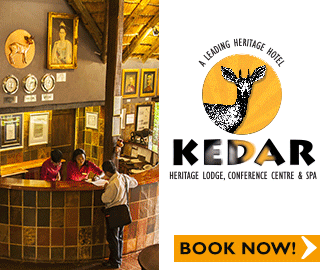
Patrice Lumumba: The Great African Martyr
BY KRISTIE OMAR 29TH MAR, 2015 17:33
From its independence from Belgium in 1960, the Democratic Republic of Congo (DRC) has been left with an unstable political system as its tribal leaders have had more power than the Central government. Prevalent on the world’s mind when DRC is mentioned are the names such as Kabila, Lumumba, Mobuto and ultimately the first and second Congo war.
Patrice Lumumba is next to
Nelson Mandela, the iconic figure that most readily comes to mind when Africa is discussed in relation to its struggle against imperialism and racism.
Mandela suffered tremendously.
But he won. Lumumba, on the other hand, lost - he lost power, he lost his country, and in the end, he lost his life.
Coming from a home with four brothers and two simple farmer parents, Lumumba joined the Liberal Party of Belgium, where he worked on editing and distributing party literature after working odd jobs such as a beer salesman and postal clerk. His release from serving a twelve month sentence in prison for embezzling saw Patrice come back to help resurrect the broad-based Mouvement National Congolais (MNC) in 1958. The party was a united front organization dedicated to achieving independence and bringing together members from a variety of political backgrounds in order to achieve independence.
The man had charisma, the gift of the gab and soon galvanized the party into action with his oratory. However, his rhetoric was too radical for some in the party and they left to form a new party. In the year 1959, Lumumba gained recognition as the only truly national figure on the Congo political scene. His persuasive, attractive personality dominated the political meeting called the Luluabourg Congress in April 1959, in which all the political groups who favoured a unitary form of government for the Congo—one that would unite tribes and regions into one nation— he attempted to establish a common front.
Patrice Lumumba famously said at his Independence day speech “We are proud of this struggle, of tears, of fire, and of blood, to the depths of our being, for it was a noble and just struggle, and indispensable to put an end to the humiliating slavery which was imposed upon us by force.”
However, Lumumba's growing reputation and seemingly radical views caused hostility among other MNC leaders.
The result of this disagreement was a split in the party in July 1959. Most of the party's original founders supported Albert Kalonji as their representative, while Lumumba held onto the loyalty of most other party members. Nevertheless in the election in May 1960 Lumumba's MNC gained a stunning majority in Stanleyville (Kisangani) and a plurality in the national election. While the MNC did not by any means gain a national majority it’s showing was indicative of a substantial support for national identification and a rejection of ethnicity-based politics. A coalition government with the ABAKO party, led by Joseph Kasavubu, was formed with the MNC accepting Kasavubu as president and Lumumba as Prime Minister of the Republic.
Seemingly a brilliant move at the time, it however set in motion a political drama of epic proportions. The charismatic nationalist, Lumumba led the only party in parliament with a nationwide rather than ethnic or regional base.
Within days, however, Congo’s troops mutinied against their all-white officer corps (a holdover from the colonial era) and started terrorizing the European population. Belgium responded by sending forces to reoccupy the country and helping Congo’s richest province, Katanga, to secede. Other politicians receiving the prime ministership as a result of obtaining a mere 25 percent plurality would perhaps have accepted that they did not have a mandate and would have worked to build consensus. But compromise and moderation were not part of Lumumba's nature. His was more of a Leninist personality.
When Lumumba was not able to induce the U.N. force to invade and capture control of Katanga he called for Soviet aid. Other Congolese politicians recognized what the introduction of Soviet forces into the Congo imbroglio would mean. When Kasavubu dismissed him as prime minister it was the right thing to do, but given Lumumba's nature he provoked a constitutional crisis by attempting to fire Kasavubu and when that failed he attempted to set up an alternative government in Stanleyville (Kisangani). Lumumba, whose one fixed idea was the maintenance of a unitary centralist government, was supporting the split the non-secessionist territory of the country into two parts.
THE ORIGINAL SIN
In Congo, Lumumba's assassination is rightly viewed as the country's original sin. Coming less than seven months after independence, it was a stumbling block to the ideals of national unity, economic independence and pan-African solidarity that Lumumba had championed, as well as a shattering blow to the hopes of millions of Congolese for freedom and material prosperity. The assassination took place at a time when the country had fallen under four separate governments: the central government in Kinshasa (then Léopoldville); a rival central government by Lumumba's followers in Kisangani (then Stanleyville); and the secessionist regimes in the mineral-rich provinces of Katanga and South Kasai. Lumumba was driven to an isolated spot where three firing squads had been assembled. The execution probably took place on 17 January 1961 between 21:40 and 21:43 according to the Belgian report. The Belgians and their counterparts wish to get rid of the bodies, which were dug up, dismembered, dissolved in sulphuric acid, with the bones ground and scattered.
Patrice Lumumba is, next to Nelson Mandela, the iconic figure that most readily comes to mind when Africa is discussed in relation to its struggle against imperialism and racism. Mandela suffered tremendously. But he won. Lumumba, on the other hand, lost - he lost power, he lost his country, and in the end, he lost his life. All were forcibly taken from him by a combination of forces that was probably the most powerful ever deployed against a single individual in history. Ludo De Witte, in his book, “The Assassination of Patrice Lumumba”, calls Lumumba’s murder “the most important political assassination in the 20th century”. Despite all this, Lumumba never lost his most powerful possession, Legacy.
In his last letter to his wife, Patrice Lumumba states;
“ No brutality, mistreatment, or torture has ever forced me to ask for grace, for I prefer to die with my head high, my faith steadfast, and my confidence profound in the destiny of my country, rather than to live in submission and scorn of sacred principles. History will one day have its say, but it will not be the history that Brussels, Paris, Washington or the United Nations will teach, but that which they will teach in the countries emancipated from colonialism and its puppets. Africa will write its own history, and it will be, to the north and to the south of the Sahara, a history of glory and dignity”.
From 1971 to 1997 the country was officially the Republic of Zaire; a change made by then ruler Gen. Mobutu Sese Seko to give the country what he thought was a more authentic African name. “Zaire” is a variation of a term meaning “Great River” in local Kongo language; like the country’s current name, it refers to the Congo River, which drains a large basin that lies mostly in the republic. Unlike Zaire, however, the name Congo has origins in the colonial period, when Europeans identified the river with the kingdom of the Kongo people, who live near its mouth. Following the overthrow of Mobutu in 1997, the country’s name prior to 1971, the Democratic Republic of the Congo, was reinstated. Congo subsequently was plunged into a devastating civil war; the conflict officially ended in 2003, although fighting continued in the eastern part of the country.
A nation as big as Western Europe, the Democratic Republic of Congo is a topic that has waged the tongues of most political, social and human rights activists for decades. A quarter century of experimentation with Marxism was abandoned in 1990 and a democratically elected government took office in 1992. A brief civil war in 1997 restored former Marxist President Denis SASSOU-Nguesso, and ushered in a period of ethnic and political unrest. Southern-based rebel groups agreed to a final peace accord in March 2003, but the calm is tenuous and refugees continue to present a humanitarian crisis.
Has all this fighting made us forget what the Republic of Congo offers us as a continent? Congo is rich in natural resources. It boasts vast deposits of industrial diamonds, cobalt, and copper; one of the largest forest reserves in Africa; and about half of the hydroelectric potential of the continent. And what of the leaders that have defiled and defined new political directions in the country and hence affecting Africa as a whole. Perhaps, to this day, the most celebrated is Patrice Emery Lumumba.
THE BIRTH OF A MARTYR
Born in 1925 during Belgian’s rule of the Congo, Patrice was brought into a world of racial segregation. Large numbers of white immigrants who moved to the Congo after the end of World War II came from across the social spectrum, but were nonetheless always treated as superior to blacks. From the tiny village of Onalua in northeastern Kasai, a Congolese province, at the time of his birth, the Congo was still a colony of Belgium.
As a child, Lumumba attended Protestant and then Catholic schools run by white missionaries. At the mission schools, Lumumba proved to be a fine student, even though the mud-brick house he lived in had no electricity and he could not study after dark. In addition, the mission schools were poorly equipped, with few textbooks or basic school supplies.
Nevertheless, Lumumba's teachers spotted his quick intelligence and loaned him their own books, encouraging him to advance. Some teachers also found that his intelligence caused them problems, feeling he asked too many troublesome questions.








